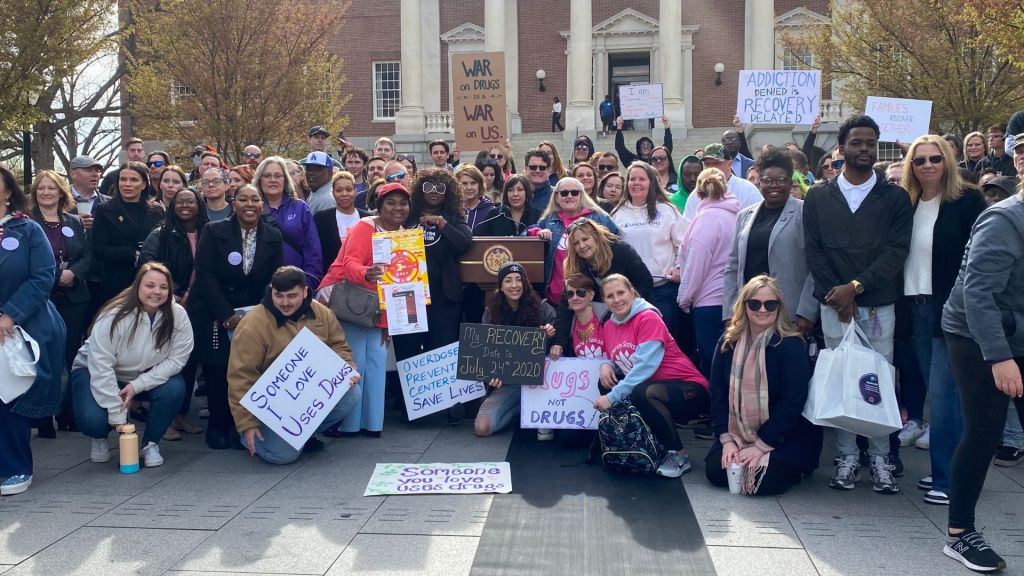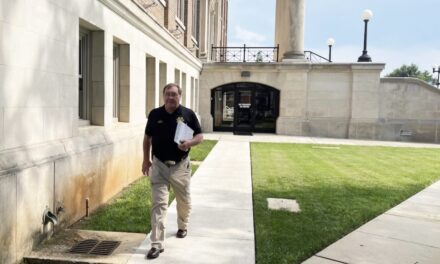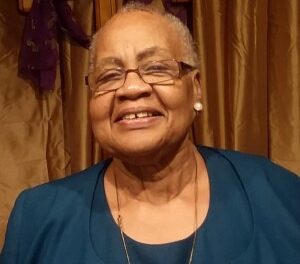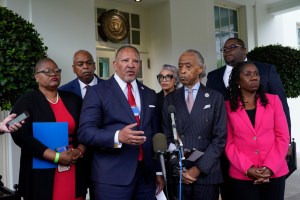By Tashi McQueen
AFRO Staff Writer
tmcqueen@afro.com
State and local leaders, advocates and community members gathered on April 2 at Lawyer’s Mall in Annapolis, Md., for Maryland’s first Substance Use Awareness Day rally.

Credit: AFRO Photo/Tashi McQueen
Attendees endured the cold and gusty winds to hear from Lt. Gov. Aruna Miller (D), state legislators, and Special Secretary of Overdose Response Emily Keller as they called for an end to fatal overdoses and more streamlined substance use services in the state.
“This crisis has taken way too many lives,” said Miller. “It doesn’t discriminate, and neither can our response. Today isn’t just about awareness. It’s about action. It’s about saving lives.”
Miller touted the Moore-Miller administration’s progress, highlighting a 38 percent decline in fatal overdoses in 2024, a decrease from 2,511 deaths in 2023. She also underscored the $12.4 million in grants awarded on March 4 to 28 programs through Maryland’s Opioid Restitution Fund.
According to the governor’s office, the state saw historic levels of overdose deaths in 2021, with 2,800 lives lost following the height of the COVID-19 pandemic.
Sherease Alston, an outreach representative for Unlimited Bounds, pressed the need for state and local entities to meet individuals with substance use disorders where they are.

Credit: AFRO Photo/Tashi McQueen
“Instead of waiting for the clients to call us, we need to go to where they are in our Black communities to reach them,” said Alston. “Some are afraid to ask for a helping hand, so they stay stuck where they are because that’s their comfortability.”
Alston said she hopes to see future substance use rallies in the heart of Baltimore and its heavily impacted communities.
“We need to rally in our own community to show that it’s not just our Black people that’s trying to help Black people,” said Alston. “There are other people who are behind the scenes fighting for us too.”
Keller oversees Maryland’s Office of Overdose Response, which is currently working with Lt. Gov. Miller to streamline the work of state agencies endeavoring to decrease overdoses and enhance substance use services access in Maryland.
At one point in her career, as a psychiatric rehabilitation program case manager, Alston experienced the loss of a client due to an overdose. She reflected on how the unexpected death of her client helped her understand the need to streamline services for recovering individuals.
“It’s sad because we try to do our best, but it always has to be on the individual to say they’re ready for it,” said Alston. “But I feel that if there was more connection between services, and she didn’t have only me, she might have survived.”

Mikia Gardener, an individual who has recovered from drug addiction, attended the rally to encourage legislators to ensure funding for transitional and recovery homes as they consider Maryland’s fiscal year 2026 budget.
“We have to stand firm that this is what recovery is about,” said Gardener. “If they cut funding for it, then you’re going to have a lot more issues with people overdosing.”
Members of the Maryland General Assembly are racing to pass a range of bills related to substance use disorders before the close of the 2025 session on April 7.
Some of the targeted bills include House Bill 1131, which aims to create a buprenorphine training grant program to offset the cost of training first responders to administer the opioid treatment medication. As of April 2, HB 1131 has passed the House and is on third reader in the Senate.
If the bills are not passed by the end of the session, they die and must be reintroduced during next year’s session to be considered again.
The post Maryland’s inaugural substance use rally highlights need for rehabilitative services appeared first on AFRO American Newspapers.












